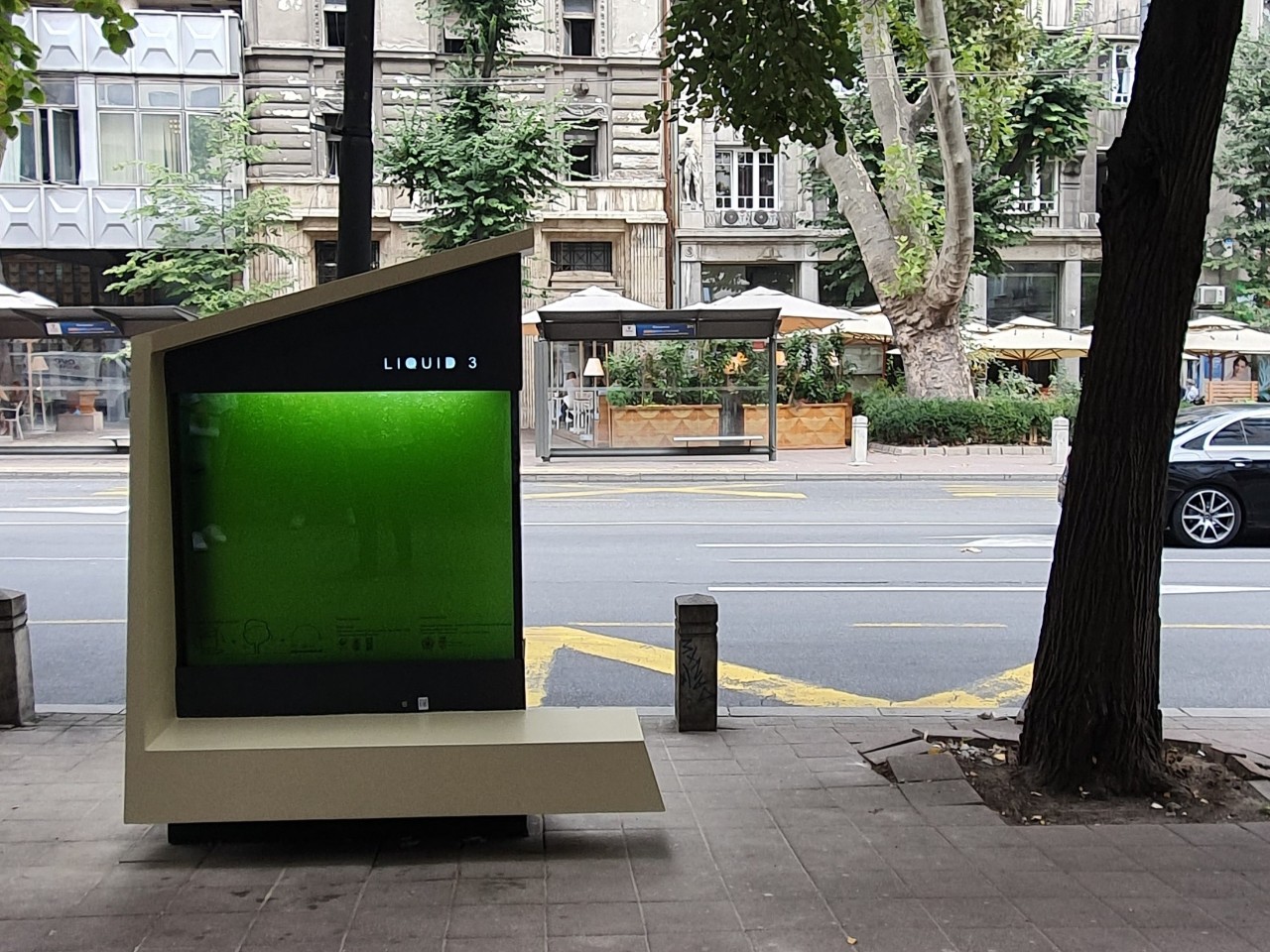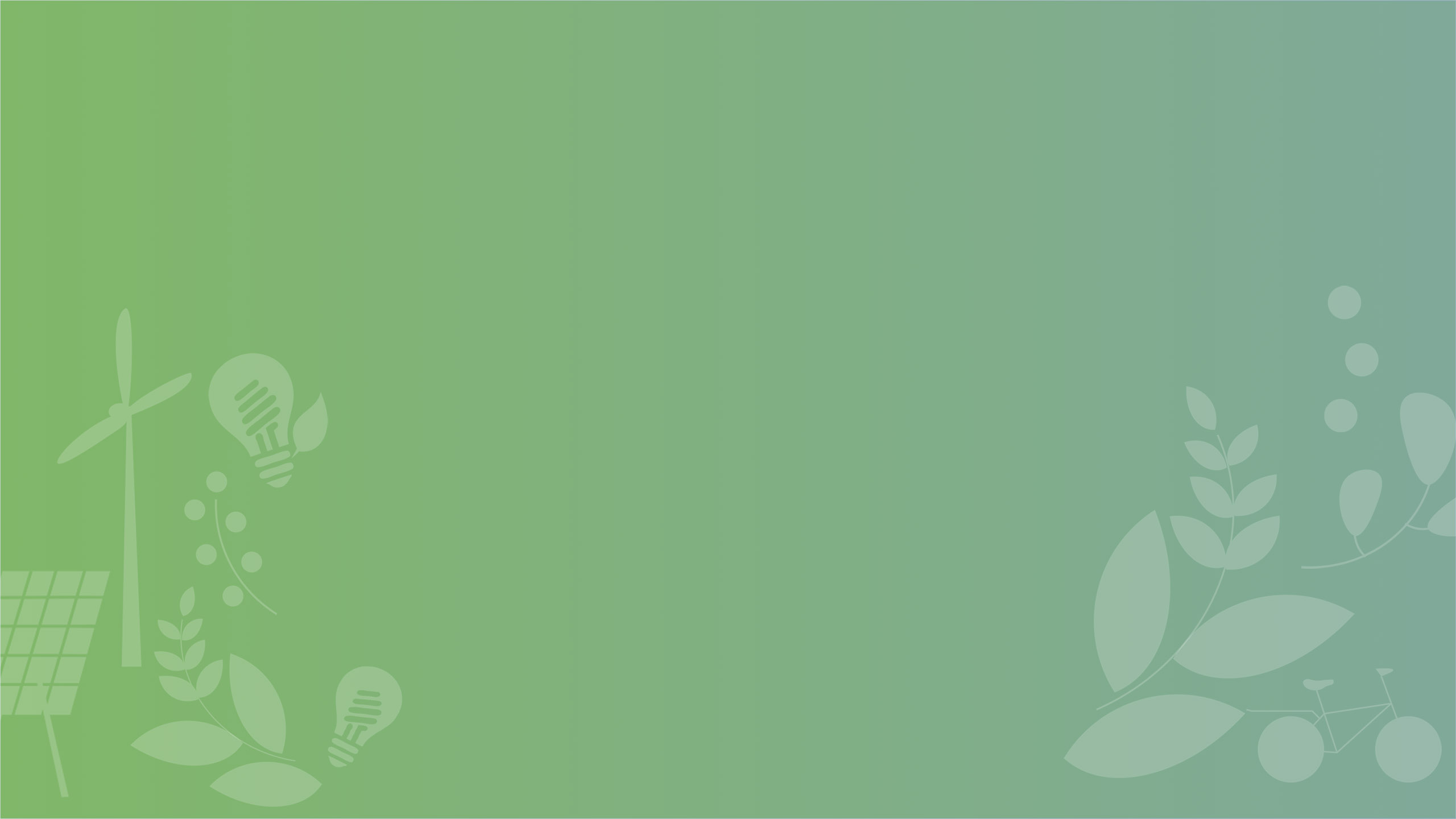THE FIRST ALGAE AIR PURIFIER IN SERBIA
The first urban photo-bioreactor in Serbia, “LIQUID 3”, has been placed in front of the Municipality of Stari Grad in Makedonska Street in Belgrade. This “liquid tree”, as it is called at the “Institute for Multidisciplinary Research” of the University of Belgrade, where it was designed, is a completely new biotechnological solution for air purification and reduction of carbon dioxide (CO2) emissions in urban areas where its concentrations are highest.
“More than half of the population of Serbia lives in urban settlements, even 59%, and that number is constantly increasing. This greatly affects the density of settlements, the quality of life, the increase in the number of vehicles on the streets, pollution and the increase of harmful greenhouse gas (GHG) emissions. It is estimated that cities are the source of as much as 75% of total CO2 emissions in the world, of which the largest percentage comes from traffic and cooling and heating in buildings”, explained Ms. Francine Pickup, Resident Representative of the United Nations Development Program (UNDP) in Serbia.
According to her, trees and green areas represent natural air purification in urban areas, but there is often a lack of free areas for landscaping. “LIQUID 3” is an efficient and innovative solution for reducing greenhouse gas emissions and improving air quality.
“The photobioreactor is a completely new biotechnological solution for air purification and the production of oxygen. In an aquarium of six hundred liters of water, we have algae that bind carbon dioxide and produce pure oxygen through photosynthesis. The project is designed to be multifunctional. LIQUID3 is also a bench, it has chargers for mobile phones, as well as a solar panel, thanks to which the bench has lighting during the night. The municipality of Stari grad has decided to support this project which directly contributes to improving the quality of life of our fellow citizens, public health and cleaner environment through using smart and innovative solutions “, said Bojan Bojić, head of the Department for social affairs and development projects in the Municipality of Stari grad.
“The microalgae in “LIQUID 3” replace two 10-year-old trees or 200 square meters of lawn. The system is the same because both trees and grass perform photosynthesis and bind carbon dioxide. The advantage of microalgae is that they are 10 to 50 times more efficient than trees. Our goal is not to replace forests, but to use this system to fill those urban pockets where there is no space for planting trees. In certain conditions of great pollution, trees cannot survive, while algae do not mind that pollution”, pointed out Dr Ivan Spasojevic, one of the authors of the project from the Institute for Multidisciplinary Research.
As he explained, the Institute used single-celled fresh water algae, which exist in ponds and lakes in Serbia and can grow in tap water, and are resistant to high and low temperatures. The system does not require special maintenance – it is enough to remove the biomass created by dividing algae, which can be used as an excellent fertilizer, in a month and a half, pour new water and minerals, and the algae continue to grow indefinitely. This project aims to popularize and expand the use of microalgae in Serbia, because they can be used in wastewater treatment, as compost for green areas, for the production of biomass and biofuels, as well as for air purification from exhaust gases from the factories.
“LIQUID 3” was awarded as one of the 11 best innovative and climate-smart solutions within the project “Climate Smart Urban Development”, implemented by the UNDP in partnership with the Ministry of Environmental Protection, with financial support from the Global Environment Facility (GEF). The municipality of Stari Grad, as a partner in the realization of the project, provided the location and allowed the installation of the system.


